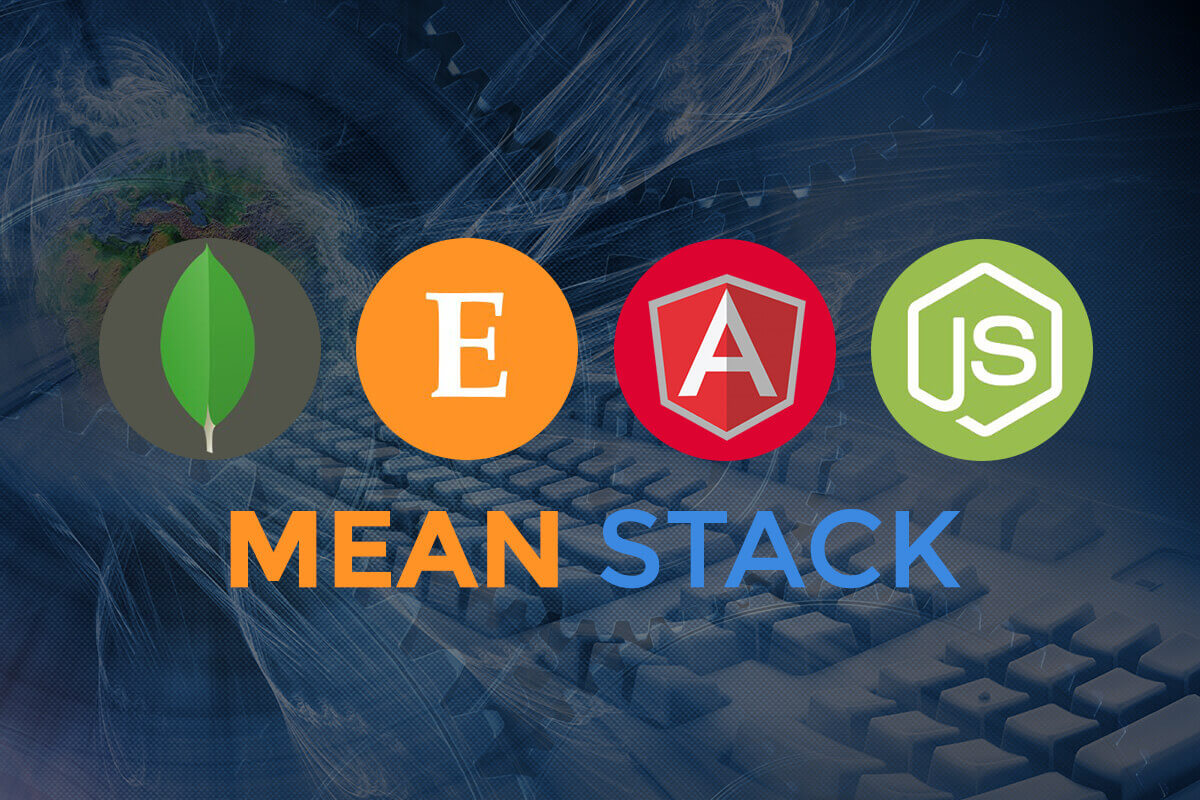MEAN stack, an acronym for MongoDB, Express.js, Angular, and Node.js, This article represents a robust and cohesive set of technologies for building dynamic and scalable web applications.. This article delves into the core components of the MEAN stack, its advantages, applications in modern web development, and the seamless integration of these technologies that has propelled MEAN to the forefront of web development frameworks.
Understanding the MEAN Stack
The MEAN stack is a full-stack JavaScript framework that leverages the power of four essential technologies:
- MongoDB
A NoSQL database that stores data in JSON-like documents. MongoDB’s flexibility and scalability make it suitable for handling dynamic and evolving data structures.
- Express.js
A minimalist and flexible Node.js web application framework that simplifies the development of server-side applications. Express.js streamlines routing, middleware creation, and request handling.
- Angular
A robust front-end framework developed by Google for building dynamic and responsive user interfaces. Angular’s declarative approach and modular structure enable the creation of single-page applications (SPAs) with complex user interactions.
- Node.js
A JavaScript runtime built on the V8 engine that allows for server-side scripting. Node.js facilitates the execution of JavaScript code on the server, providing a unified language for both client and server-side development.

Advantages of MEAN Stack Website Development
- Full-Stack JavaScript
MEAN stack’s primary advantage lies in its use of JavaScript throughout the entire development stack. This uniformity simplifies development, promotes code reusability, and facilitates seamless communication between the front-end and back-end components.
- Isomorphic Code
The MEAN stack enables the creation of isomorphic code, where JavaScript code can be executed both on the server and the client. This enhances performance, reduces latency, and contributes to a smoother user experience.
- Scalability
Each component of the MEAN stack is designed to be scalable. MongoDB handles large volumes of data, Express.js manages server-side scalability, Angular supports the development of scalable and modular front-end components, and Node.js facilitates efficient server-side scalability.
- Real-Time Applications
The MEAN stack, with the integration of technologies like Socket.io, facilitates real-time communication and updates. This is particularly beneficial for applications that require live interactions and instant data synchronization.
- Community Support
The MEAN stack benefits from a vibrant and active developer community. This community support translates into a wealth of resources, tutorials, and third-party libraries, contributing to the stack’s popularity and accelerating development cycles.
Application in Modern Web Development
- Single Page Applications (SPAs)
The MEAN stack is particularly well-suited for building SPAs where content is dynamically loaded without requiring a full page reload. Angular’s powerful features, coupled with Node.js for server-side rendering, enable the creation of interactive SPAs.
- Real-Time Collaboration Tools
The real-time capabilities of the MEAN stack make it an ideal choice for building collaborative tools such as messaging applications, project management platforms and shared editing tools where multiple users interact simultaneously.
- E-commerce Platforms
The MEAN stack is increasingly utilized in the development of e-commerce platforms due to its ability to handle real-time updates, scalability for handling large product catalogs, and the capability to create dynamic and interactive user interfaces.
- Content Management Systems (CMS)
MEAN stack can be employed to build CMS platforms, allowing for efficient content creation, management, and delivery. MongoDB’s flexibility accommodates diverse content types, while Angular facilitates the development of a dynamic and user-friendly interface.
Synergy Between MEAN Stack Technologies
- Front-End and Back-End Synchronization
Angular on the front end and Node.js on the back end share a common language, JavaScript. This enables seamless communication between the two, enhancing synchronization and reducing development complexities.
- RESTful API Development
Express.js is well-suited for creating RESTful APIs, enabling effective communication between the front-end and back-end components. This structured approach to API development ensures clarity, scalability, and ease of integration.
- NoSQL Database Integration
MongoDB’s document-oriented structure aligns well with the JavaScript nature of Angular and Node.js. This facilitates smooth data transfer and manipulation, promoting consistency across the entire development stack.
- Middleware Integration
Express.js provides a middleware framework that simplifies handling incoming requests and responses. This middleware layer allows developers to integrate additional functionalities, such as authentication and logging, seamlessly into the application.

Challenges and Considerations
- Learning Curve
Developers new to the MEAN stack may face a learning curve, especially if they are not familiar with all the technologies involved. However, comprehensive documentation and active community support can mitigate this challenge.
- Security Concerns
As with any web development stack, security is a critical consideration. Implementing secure practices, such as input validation, authentication, and secure communication, is essential to address potential security vulnerabilities.
- SEO Optimization
SPAs built with Angular may face challenges with traditional search engine optimization (SEO) due to the initial reliance on client-side rendering. Techniques such as server-side rendering (SSR) can be employed to address this concern.
Future Trends in MEAN Stack Development
- GraphQL Integration
MEAN stack developers may increasingly integrate GraphQL, a query language for APIs, to enhance data fetching capabilities. GraphQL provides a more efficient and flexible alternative to traditional RESTful APIs.
- Microservices Architecture
MEAN stack applications may adopt a microservices architecture, breaking down the application into smaller, independently deployable services. This enhances scalability, maintainability, and development speed.
- Serverless Computing
The trend of serverless computing, where developers focus on writing code without managing server infrastructure, may influence MEAN stack development. Adopting serverless frameworks could simplify deployment and maintenance.
- Machine Learning Integration
As machine learning and artificial intelligence continue to play a significant role in web applications, MEAN stack developers may explore integrating machine learning models using tools and libraries available in the JavaScript ecosystem.
Conclusion
MEAN stack website development stands as a testament to the cohesion and versatility achievable by combining MongoDB, Express.js, Angular, and Node.js. This full-stack JavaScript framework empowers developers to create scalable, real-time, and feature-rich web applications. As MEAN continues to evolve and align with emerging trends, it remains a compelling choice for developers seeking a comprehensive and efficient solution to address the complexities of contemporary web development. The unified language, seamless integration, and collaborative ecosystem of MEAN pave the way for innovative and dynamic digital experiences.


Leave a Reply